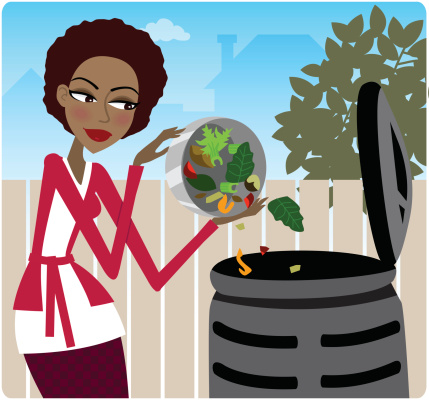 Sparkly vampires that don’t die in sunlight and fall in love with inarticulate teenage girls, zombies eating brains with grapefruit spoons and their pinkies out (or off?) with Elizabeth Bennett, hapless-yet-cunning teens battling to the death in a reality show that makes Jersey Shore look like The Christian Ladies Aid Society – these are the types of books that keep most people up at night. Me? I’ve been up for a week now reading the gripping tales of The Fat-Cholesterol Hypothesis and The Carbohydrate Hypothesis spun by Gary Taubes in his game-changing 2007 tome Good Calories Bad Calories. Kinda like the Bible and Moby Dick, lots of people will talk about this book but very few of them have actually read it.
Sparkly vampires that don’t die in sunlight and fall in love with inarticulate teenage girls, zombies eating brains with grapefruit spoons and their pinkies out (or off?) with Elizabeth Bennett, hapless-yet-cunning teens battling to the death in a reality show that makes Jersey Shore look like The Christian Ladies Aid Society – these are the types of books that keep most people up at night. Me? I’ve been up for a week now reading the gripping tales of The Fat-Cholesterol Hypothesis and The Carbohydrate Hypothesis spun by Gary Taubes in his game-changing 2007 tome Good Calories Bad Calories. Kinda like the Bible and Moby Dick, lots of people will talk about this book but very few of them have actually read it.
Not that I blame them. It’s 576 densely worded pages of research paper hell. And I used to be a Graduate Assistant that was paid to write research papers so I know that of which I speak. I’m going to be honest: I read most of it. Skimmed the rest. Fell asleep and drooled all over the “Conservation of Energy” chapter. Was just like college but without all the PowerPoint atrocities.
Good thing for all of us, Taubes includes a four word summary – a dietary rebus, if you will – on the front cover. Take this handy quiz:
Like the old woman/young woman illusion, what you see is all about your perspective. In this picture, is the piece of bread the “good calories” and the butter the “bad calories” or vice versa? For years, as any of you who lived through the nineties (check yes if you ever included “grrrl” in a description of yourself!) can attest, fat – especially saturated animal fats like butter – was the devil in the Devil’s food cake. Even today, the American Heart Association recommends no more than 7% of your daily calories come from saturated fats and no more than 25-35 % from any fat.
Most of us are well versed in the “good fats” and “bad fats” doctrine. It is, as Taubes takes the first 4 chapters to point out, the conventional wisdom. (I can’t complain too much though because it was during this introduction that I got to meet a delightful 18th century Brit named Banting who lost so much weight on a low-carb diet that he went on a pamphlet-strewn publicity tour that puts Atkins to shame. Banting is like Jared the Subway Guy dressed like Marie Osmond on Nutrisystem and with an evangelical spirit that’s half Kirstie Allie and half Richard Simmons. I love him.)

According to Taubes, everything you “know” about diet and nutrition is wrong. He backs up this assertion with very (very very) detailed analyses of all the research ever done on the subject, branching into a conspiracy theory about scientists suppressing evidence and changing study results that I would have found laughably ludicrous had I not worked in academic research for so many years and found out first hand what sharks professors on tenure track can be. But I digress. Here’s a summary – you’re welcome – of the myths busted by Taubes:
- Eating fat makes you fat.
- High cholesterol is bad and the best predictor of heart disease.
- Cholesterol should be lowered at all costs.
- The best way to lower triglycerides and cholesterol is through cutting out dietary fats, especially saturated animal fats.
- That Western illness like cancer, diabetes, dementia, and heart disease are inevitable if you live long enough.
Basically, Taubes postulates that the surest and best way to help people not only lose weight but also live the longest, healthiest lives possible is to eat lots of fat (all kinds) and protein but cut out carbohydrates. He especially blames sugar for societal ills – no shocker there – but also includes “good” carbohydrates like fruit and whole grains. Not only do carbohydrates not provide good nutrition in the form of energy, says he, but also have the deleterious effects of leaching vitamins and weakening the body in other ways. For those of you who are familiar with Atkins or with the Paleo/Primal diets, Taubes’ book is scripture. For the rest of us, these assertions fly in the face of everything we have been taught about good nutrition.







First when we want to see what food is good for us, we have to check our enzymatic system and our digestive tract including the teeth.
What we see is that we are mostly the same as our next bretheren in the animal kingdom, the chimps. Except that they have stronger jaw muscles and a longer blind gut because they eat so much hard to digest plant matter (roots, twigs, tree bark).
So because we could refine our food and ate less hard to digest matter, our jaw muscles lost strenght and our blind gut also got smaller.
But we still have the same level of enzymes and the basic digestive tract including low levels of hydrochloric acid in the stomach and low levels of uricase which is used to turn uric acid into a harmless form to be filtered by the kidneys and dumped with the urine.
Chimps eat mostly plant matter and 5% of animal matter.
Different to chimps, humans have higher levels of starch digesting enzymes in their saliva…this leads us to believe that humans relied more on starchy foods than simple sugar like chimps do(who feed on 40-60% of fruits).
Humans seem to have adapted to a more starchy diet, but their levels of enzymes and acid to digest animal matter haven´t risen.
Our teeth are made for grinding, not for slicing. Our teeth are more adapted to plants and our so called canines are in reality no sign for us to consume animals, becaus even gorillas have bigger canines than us..or the mochus deer.
Most human societys have evolved on some kind of starchy food..rice, corn, millet, oats, potatoes, beans.
Only very few societys rely mostly on animal matter..and those are not ‘modern’ societys who could pull their weight.
Our evolution went very fast when we went to farming..and farming meant mostly plants..animals were only a sidekick, used to graze on land not suitable for humans, not feed with grains.
Feeding grains to farm animals in great style was only done by the rich to gain more fatty, soft meats or feed the horses..horses were an animal for the rich. Poor people had donkey and mulis and those weren´t feed grains.
Even pigs weren´t feed on grains and were taken into the woods to feed on acorns and other foods, even grass which humans couldn´t eat.
But humans feed on grains..the noble fraction of human kind, from ancient egypt, greek to middle ages in europe, feed on a modern and/or atkins diet, because vegetables were deemed bad and meats and dairy was good.
Interestingly the healers who tended to the nobles also wrote up the diseases from which the nobles sufferes..so called modern diseases.
Cancer, stroke, heart attack, fatty liver, gout and so on..and they had more organic and pasture feed animals and their products than we could get nowadays…they also were the only class allowed to hunt and ate much game.
…or had the money to buy sugar/honey and use it widely.
Their coca cola was wine with honey and spices..even the kids got it.
Carbs are not the problem..the problem is the humans who turn it into a singled out substance without the stuff that is in the whole plant..
Polished rice has a higher glycaemic index than parboiled rice where the parboiling pushed the vitamins and minerals into the kernel before the rice was polished.
They have the same ammount of fibre…so the blood sugar stabilising factor is not fibre, but the vitamins and minerals in the parboiled rice that are missing in the polished white rice.
Whole, brown rice is even better…
See where I am going there?
Carbs in whole foods, no matter if fruits, a baked potatoe or brown rice are good carbs…they won´t harm your body.
Singled out carbs where most of the good foodstuff is missing, will harm your body in the long run.
From white flour, rice to sugar..
Hawaiians got all the modern diseases and gained extremly on weight when they ditched their diet mostly on natural foods, fruits and rarely pig meat and ate a modern, american diet.
It is not just the calories, it is also the package the calories come in.
Same with chinese people who go to america, the indians who go to america or who turn into the upper class people…they eat ‘refined’ modern foods and get ill.
Many people seem to care more for the oil they put into their car than the food they put into themselves…the body can not run on bad fuel, just as a car can not run on bad fuel …both will show problems and break down earlier than their well cared for counterpart.
Our body craves fatty and sweet/starchy/salty foods because evolution taught it that this meant much minerals and vitamins.
Our body knows what goes into it..and what is missing..unfortunately humans changed food and our body doesn´t know that.
We crave fat because our ancestors ate fatty fruits and nuts who delivered much micronutrition.
Same reason we also crave animal fat..it was once a very rare treat and we needed it to be prepared for periods of hunger.
Nowadays our body still thinks that fatty taste means much micronutrition, but not only do we eat nutrient devoid oils and fats, but also eat much more animal fat..which we changed also in its components through what we feed farm animals or the chemicals we dumped onto the planet.
Healt saturated fats are safer to get from nuts than from animals nowadays..animals accumulate toxic substances in their body, 20 times as much as is in grains, fruits and vegetables.
Logical, because animals need to eat 20 calories to gain one calorie bodymass…and fat soluble toxic stuff will stay in the body. So because a pig/chicken/cows feeds on pounds of soy, animal meal and grains for months before the slaughter, we get such a higher concentration in the meat/milk/eggs.
Also it is a…’gag’ about the massai and eating mostly meat, dairy and blood…yes a marceting gag…
If you research the traditions of the massai a bit, you will see that only the warriors get most of it…women and children get mostly plant based foods and dairy.
Only a real warrior has the right to get ‘the strong foods’.
With 35 years the massai are calling their members seniors…does that sound long lived?
How old are you, would you call yourself a senior with 35 years?
As you, I like to read much, so maybe you find some good literature about the Massai and not the hyper-press-articles that want to shove atkins and co into a good light.
The okinawans are proven to reach over 80 years of age and even hundred…the Massai haven´t.
You may say that this is because massai live a traditional, dangerous life in these modern times.
But why would they than call members over the age of 35 seniors if maybe in older times they had less dangers to fear like nowadays?
If they are such great and healthy warriors, why are there no tales of really old Massai around?
The overall lifespan of the Massai is 40 years…
Diabetes is also not a big deal in societys that lived mostly on starchy foods that weren´t tampered with. In turn people who travel over to societys that also have a high starch intake, but a refined starch intake and also refined sugar, will get problems with diabetes.
This is also the reason why Diabetes Type 2 can be controlled and even reversed with a diet high on natural carbs, but make a diet with the same ammount of calories on refined carbs and the insulin producing cells will get problems.
If humans hadn´t tampered so much with foods, we could trust our instincts and just eat fatty/sugary foods when we feel the need to do so..with the refined, nutrient devoid foods, our body will get the calories, but not the micronutrients and fire up our hunger because the body wants the micronutrients and urges us to eat more.
Unfortunally we mostly get the chocolat bar, the coke, the caffee latte with sugar, the hamburger when we feel reavenous because it is such a big trigger to us, much more than natural foods are.
Refined foods are a stronger signal to our body than natural foods..and that is our downfall if we aren´t aware why our body craves fatty foods or starchy ones…and just eat what tastes best instead what nourishes us best.